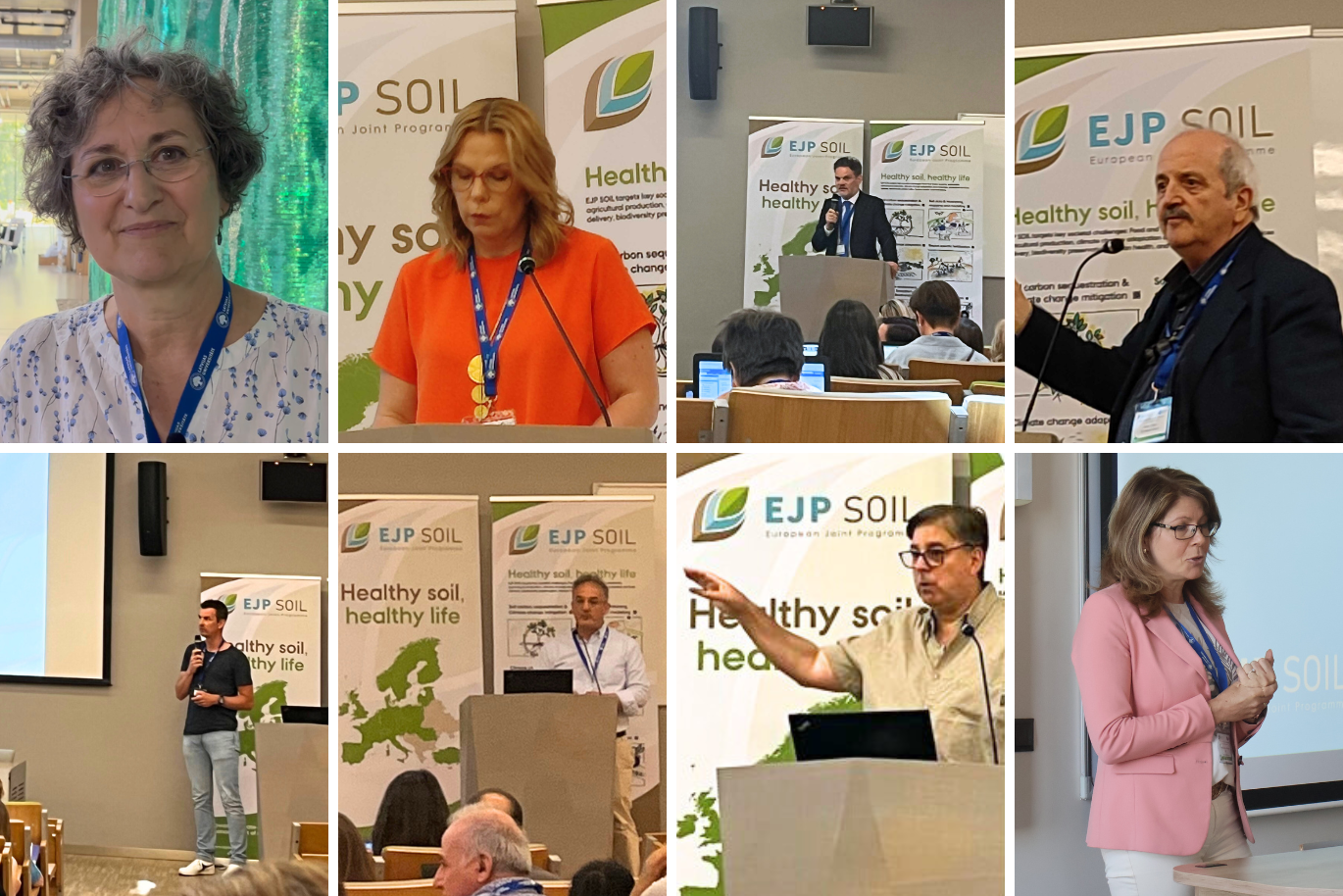Inspiring speakers at the Annual Science Days
The Annual Science Days were a great success, owing in large part to the presence of the many inspiring speakers. This article highlights the key takeaways from some of the speakers.

Claire Chenu, EJP SOIL coordinator, kick-started the event with an opening address, in which she presented the 42 projects that are working towards the EJP SOILs expected impacts, such as climate change mitigation and fostering adoption. She spoke of the evolving landscape of EJP SOIL and reminded everyone that the European landscape has completely changed since the beginning of the EJP Soil programme since a lot of EU policies and initiative have emerged. She highlighted the crucial role of EJP Soil to produce excellent target-oriented research that will contribute to all these public policy developments and help EU policy makers. EJP SOIL continues to address the big challenges of climate smart sustainable management of agricultural soils.
Soil challenges in Latvia
Kristine Sirma, Head of Sustainable Agriculture Development Division in Latvia, talked about the soil challenges at the Latvian National Scale, and she highlighted that there is a need for harmonization of GHG emission reporting across the EU, and how this is especially relevant to Latvia, because 48% of Latvian farms have organic soils.
She also talked about the importance of land managers and their inclusion in policy decisions and emphasized the need for greater advocacy in soil science, as soil is the foundation for life.
Certification of carbon removal and carbon farming
Giulio Volpi from DG Climate focused in his address on the new proposal for carbon removal certification and the need for certification methodology that includes a monitoring-reporting-verification system which will enable scaling up and investment.
The European Commission will develop a draft for certification methodology to be published after the regulation. The meetings of the expert group assisting the European Commission on carbon farming certification methodology are public, one can register online and assist: https://climate.ec.europa.eu/eu-action/sustainable-carbon-cycles/expert-group-carbon-removals_en
Living labs and lighthouses
Soil Mission representative Pandi Zdruli drew attention to the growing prominence of soils in policymaking, exemplified by the EU Soil Health Law Proposal and the EU Soil Mission. Zdruli highlighted the alarming fact that 60-70% of European soils are currently deemed unhealthy. He also promoted living labs and lighthouses that will be central to the transition towards healthy soils by 2030.
Long-term experiments for agricultural research
Tommy D'Hose presented the work of EJP Soil WP7 and the aim to establish a comprehensive dataset centralizing past and current information on Long-Term Experiments (LTEs) in participant countries. LTEs serve as crucial agricultural research infrastructures for assessing the long-term sustainability and productivity of agricultural management. D'Hose stressed the importance of protecting existing LTEs while establishing new ones to address current and emerging research issues.
Evaluating no-till systems and crop yields
David Makowski, senior researcher at INRAE, provided a quantitative research synthesis that evaluated the impact of no-till systems on crop yields globally. He explored the historical, environmental, and agronomic factors contributing to the growing opposition to tillage practices in society. Although results were heterogeneous due to variations in tillage and no-till systems and environmental influences, Makowski highlighted that, although it is a sensitive subject, on average, there is no obvious advantage of no-till for crop yield.
Land management for soil carbon and food security
Senior Research Scholar Tim Searchinger from Princeton University's Center for Policy Research on Energy and the Environment talked in his address about that a big focus of soil carbon requires holding down or reducing agricultural land while meeting rising food needs. Searchinger also called for a legitimate reward system for carbon sequestration activities, highlighting the importance of his research in this area.
Wrapping up the ASD
The Annual Science Days concluded with Deputy Coordinator Anna Besse-Lototskaya commending the remarkable team behind the event and praising the conference as a captivating showcase of high-quality research and inspiring discussions on soil science.
Thank you to all speakers for your presentations, the discussions and the debates on soil health and soil science. The Annual Science Days have once again reinforced the importance of scientific research, collaboration, and policy action to address the future of our soils.